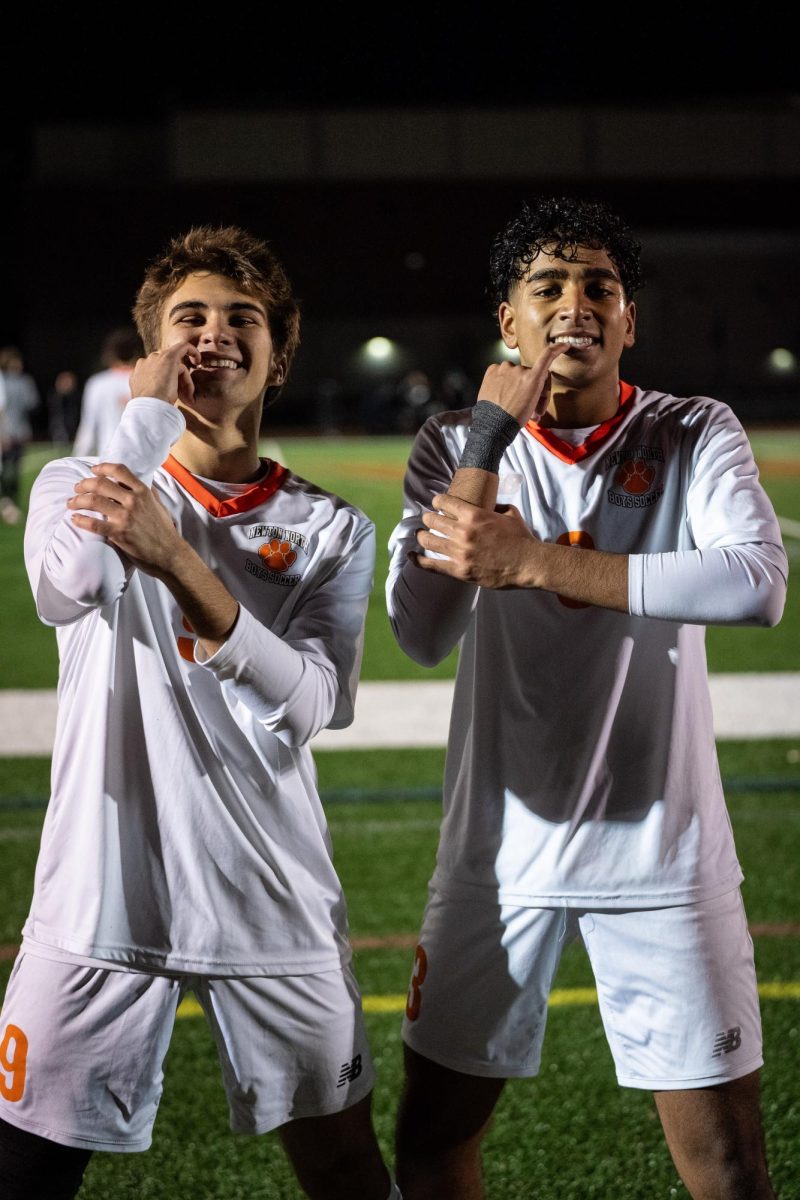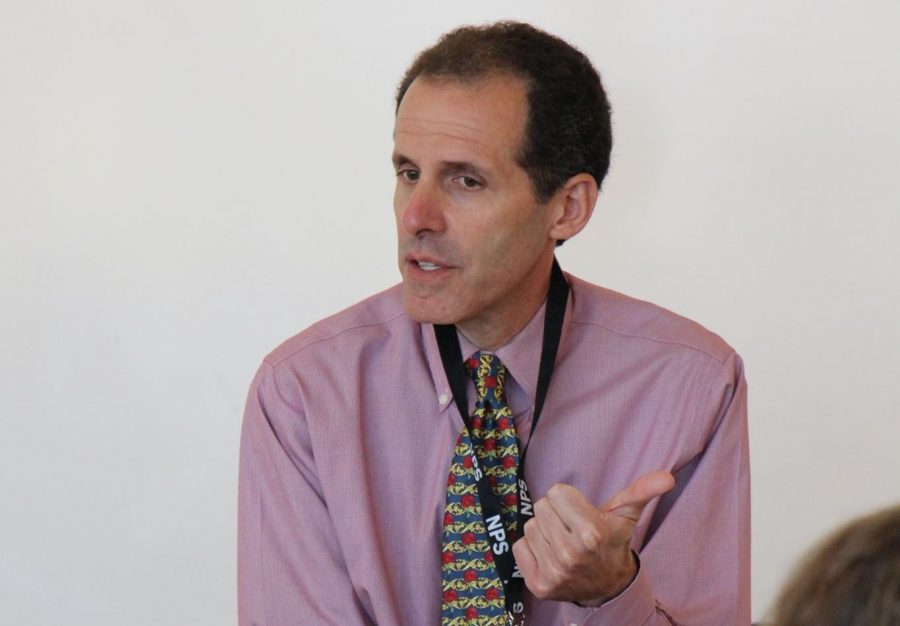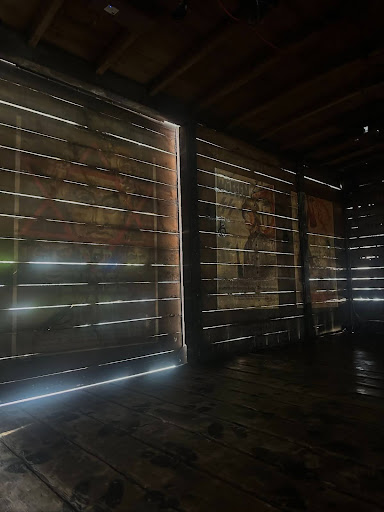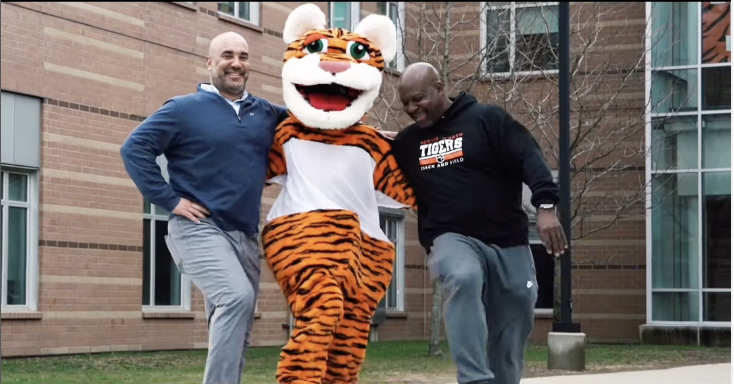
by Leah Budson
Superintendent David Fleishman discussed the lessons that can be learned from his recent plagiarism fiasco with this school’s Leadership in a Diverse Society class E-block yesterday.
Last June, Fleishman’s graduation speeches at this school and South bore frightening resemblance to commencement speeches governor Deval Patrick had given the month prior with no citation given to Patrick. This news was publicized in late July, and the School Committee chose to dock Fleishman a week of pay in response to his plagiarism.
“This is the most significant and most humiliating failure of my professional life,” Fleishman said to the class. The most serious issue, he felt, was his “not leading by example.”
Fleishman began his visit by giving a prepared summary of his thoughts on the summer’s events, followed by a thirty-minute question and answer session with the Leadership students.
Senior Maria Bilotta, a student in the class, criticized the scripted feel of much of Fleishman’s visit. “I would’ve liked it more if he didn’t have a speech prepared,” she said. “Even though I do understand that with something like this, you have to be careful with what words you chose to say, I didn’t feel like it was as heartfelt and as personal as it could have been.”
Many other Leadership students echoed this belief. Senior Natalie Tereshchenko said that, “I did think he was genuine throughout the entire conversation, but it was sometimes frustrating because it felt like there were certain questions he wouldn’t answer fully.
“I understand that because of his position he isn’t allowed to go into every detail, but his responses sometimes felt vague and repetitive.”
Fleishman received a variety of questions from the students, a few of which he admitted he had not been asked before. Fleishman told the class, “You asked some questions that I’ve not been asked before and actually made me think more about this, so you’ve helped me and hopefully I’ve helped you.”
The only question he explicitly said he could not answer was asked by senior Asya Grozdanova regarding whether he felt his punishment was fair. She explained that when she first found out about the pay dock “I felt like they were buying off plagiarism.”
Fleishman responded by saying that “It’s awkward for me to talk about but my bosses did” but that “I was treated the same way any other faculty in the school district would have been for a serious mistake.”
Junior Naomi Forman-Katz asked Fleishman about why he himself never called what he did plagiarism, instead saying things like “I did not properly credit and cite governor Patrick.”
“The reason I’ve said that is that’s what it is,” responded Fleishman. “I’m not hiding. I want to be specific about what it was and what it wasn’t.”
In an interview later in the day, Bilotta referenced the fact that Fleishman did not call his mistake plagiarism. “That to me is wrong, especially coming from our superintendent, whose faculty is instructed to stress the idea that there are serious consequences when not citing your sources,” she said.
During the prepared part of his visit, Fleishman talked a lot about the leadership lessons he had learned from his mistake. Despite his refusal to call it plagiarism, he continuously called what he had done “inexcusable” and stressed the importance of acknowledging one’s mistakes.
“It’s only worth apologizing for something if you can demonstrate what you’ve learned,” he said.
Fleishman first discussed the importance of taking time when crafting writing. Fleishman said his failure to credit governor Deval Patrick in his speech was due to the fact that he “wrote the piece in such a hasty and thoughtless manner” that he “actually never thought about” citations. He said he regretted not having the three people who normally review his speeches do so. “This was the one time I didn’t do it and look what happened,” he said.
He also found that some of the responses he faced were less severe than he had expected. “If you make a mistake and you acknowledge it, people will actually be very kind to you,” said Fleishman.
“All of us, regardless of what position we hold, end up getting held accountable for his actions.”
Intrinsic to acknowledging his mistake, Fleishman explained, was not hiding after his mistake was publicized. “My instinct was to hide,” he said. “But for me what was most important was attending visits and answering questions that might be uncomfortable.”
Tereshchenko had identified this part of the presentation as what stuck with her most. “I think he made a lot of insightful statements about owning up to our mistakes and fighting the urge to hide from the world when we feel ashamed or embarrassed,” she said.
Fleishman also emphasized that there was no point in using excuses. He said that when he first realized what he had done, he had briefly thought about making excuses for his actions, mentioning that he had been dealing with a lot last spring. Quickly, however, he said he realized, “If you make a mistake and you start making excuses, people don’t want to hear it.”
Despite the criticisms, most students interviewed did feel Fleishman’s responses were genuine overall. Grozdanova said, “I really appreciated the way he owned up to his mistake. He spoke from his heart and it was evident that he had learned some important lessons from all of this.”
Fleishman speaks to class about his mistakes
September 18, 2014
0
Donate to The Newtonite
More to Discover










































